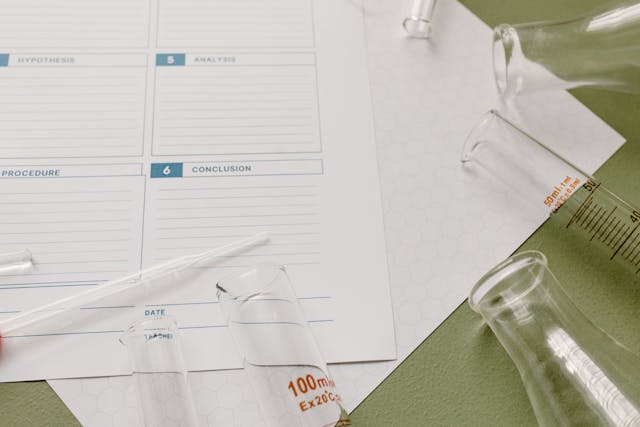Introduction: How Do You Write a Hypothesis for a Research Paper?
When embarking on a research journey, one of the most critical elements is crafting a clear, concise, and testable hypothesis. The question “how do you write a hypothesis for a research paper” resonates deeply with students, academics, and professionals alike. A hypothesis serves as the foundation of your research, providing a specific statement that guides your inquiry and experiments.
A well-formulated hypothesis acts as the roadmap for your study, helping you explore relationships between variables and uncover meaningful insights. This article delves into how to write a hypothesis for a research paper, covering every essential detail, practical tips, and examples to ensure you get it right the first time.
Understanding the Basics of a Hypothesis
At its core, a hypothesis is an educated guess or prediction about the relationship between two or more variables. It’s a statement that can be tested through research and experimentation.
A hypothesis typically answers the following questions:
- What is being studied?
- What relationship or effect is being predicted?
- What evidence is expected?
When learning how do you write a hypothesis for a research paper, remember that it should be clear, focused, and measurable.
Types of Hypotheses
Understanding the different types of hypotheses is crucial to determining which one suits your research:
- Null Hypothesis (H₀): Suggests no significant relationship or effect exists between variables. Example: “There is no relationship between study time and exam performance.”
- Alternative Hypothesis (H₁): Predicts a specific relationship or effect. Example: “Increased study time improves exam performance.”
- Directional Hypothesis: Indicates the direction of the expected relationship. Example: “Students who study more than four hours daily will score higher than those who study less.”
- Non-Directional Hypothesis: Predicts a relationship but not the direction. Example: “There is a relationship between study time and exam scores.”
The Importance of a Good Hypothesis
A strong hypothesis offers several benefits:
- Guides Research: It provides a clear focus for your study.
- Establishes Expectations: Helps predict outcomes and test theories.
- Simplifies Analysis: Directs your data collection and interpretation.
Mastering how do you write a hypothesis for a research paper ensures your study is systematic and impactful.
Step-by-Step Guide: How to Write a Hypothesis for a Research Paper
1. Identify Your Research Question
Start by clearly defining the problem or question your research seeks to address. A precise question will guide you in formulating a meaningful hypothesis.
Example: “Does exercise improve mental health?”
2. Conduct Preliminary Research
Gather background information on the topic. This helps you identify gaps in knowledge and formulate an informed hypothesis.
3. Define Your Variables
Identify the independent variable (cause) and dependent variable (effect).
Example:
- Independent Variable: Exercise
- Dependent Variable: Mental health
4. Formulate Your Hypothesis
Using your research question and variables, craft a testable statement.
Example: “Regular exercise improves mental health in adults.”
5. Ensure It’s Testable
Your hypothesis must be measurable and falsifiable.
Example: “People who exercise five times a week will report lower stress levels than those who do not exercise.”
Common Mistakes to Avoid
- Being Too Vague: Hypotheses must be specific and clear.
- Lack of Testability: Avoid statements that cannot be measured.
- Ignoring Background Research: Ensure your hypothesis is informed by existing studies.
Examples of Hypotheses in Different Fields
Psychology
Hypothesis: “Students who practice mindfulness daily experience less anxiety during exams.”
Biology
Hypothesis: “Increasing sunlight exposure will enhance plant growth.”
Education
Hypothesis: “Interactive teaching methods improve student engagement.”
Examples like these illustrate how to tailor hypotheses to different research areas.
How to Test Your Hypothesis
Testing your hypothesis involves these key steps:
- Design an Experiment: Plan a study to collect relevant data.
- Analyze Data: Use statistical methods to evaluate your results.
- Draw Conclusions: Determine whether your hypothesis is supported or refuted.
Crafting Hypotheses for Different Research Papers
- Lab Reports: Focus on specific experiments.
- Thesis Papers: Address broader research questions.
- Case Studies: Explore individual or group behaviors.
Knowing how do you write a hypothesis for a research paper ensures you can adapt it to any academic or professional context.
FAQ Section: How Do You Write a Hypothesis for a Research Paper?
Q1: What is a hypothesis in a research paper?
A hypothesis is a testable prediction about the relationship between variables in your study.
Q2: How do you construct a hypothesis?
Identify your research question, conduct background research, and define your variables before formulating a testable statement.
Q3: How do you write a good hypothesis?
A good hypothesis is clear, specific, and testable, addressing both the independent and dependent variables.
Q4: How do you start a hypothesis?
Begin with a statement like “If [independent variable], then [dependent variable].”
Q5: How do you test a hypothesis?
Conduct an experiment, collect data, and analyze results to confirm or refute the hypothesis.
Conclusion: The Value of a Well-Written Hypothesis
Mastering how do you write a hypothesis for a research paper is a fundamental skill for any researcher. A well-crafted hypothesis provides clarity, direction, and purpose to your study, ensuring your research is systematic and impactful.
By following the steps outlined in this article, avoiding common mistakes, and tailoring your hypothesis to your field of study, you’ll be equipped to produce high-quality research.

Share this:
- Click to share on Facebook (Opens in new window) Facebook
- Click to share on X (Opens in new window) X
- Click to share on LinkedIn (Opens in new window) LinkedIn
- Click to share on Reddit (Opens in new window) Reddit
- Click to share on X (Opens in new window) X
- Click to share on Threads (Opens in new window) Threads
- Click to share on WhatsApp (Opens in new window) WhatsApp




